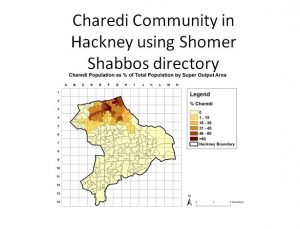Neighbourhood Knowledge Management
In the early 2000s Les Mayhew of City University demonstrated the potential for joining together administrative information spanning more than one agency (for example, health, local authority and police) to a range of local issues including population estimation. A chance meeting with John Eversley, highlighted the value of collaborating to add more datasets and to demonstrate new applications. John Eversley was drawing on earlier research he had done using pupil-level data on languages spoken by school children (e.g. Baker and Eversley, 2000). We branded the process Neighbourhood Knowledge Management (NKM) – a reference to a government policy priority at the time. Over a period of ten years or so, ppre working in conjunction with Professor Les Mayhew, Gillian Harper and other associates we undertook many assignments for central and local government, health care commissioners and providers – individually and in partnerships, which covered, for example:
- Population profiling of districts and localities with particular regard to populations which might not have been identified in censuses such as the Turkish/Kurdish, Somali and Charedi (Ultra-Orthodox Jewish) communities or where the population might have changed substantially – see Waples and Eversley (2013) and Harper, Eversley and Mayhew (2013)

- Equality Impact Assessments for general policymaking or specific programmes as a major regeneration project or social care or social and community cohesion – see Eversley and Mayhew (2011).
- Supporting bids for, or decisions on the allocation of resources e.g. work for LB Islington to inform its bid for resources under the government’s Troubled Families programme. This included a financial model which was transferable to other local authorities: see Eversley, Mayhew and Waples (2012).
Central to the effectiveness of the method, was access to health data sets – particularly the GP Register – and data about pupils (the Pupil Level Annual School Census). The Health and Social Care Act, 2012 made it much more difficult to access the GP Register for research, even though the data was pseudonymised. The creation of school academies also meant that the schools data was less comprehensive at the local level. We had to re-think what sources of data we use and change the focus of activity. A way of identifying Houses in Multiple Occupation (HMOs) and thus the potential to introduce local licensing arrangements led to a number of projects undertaken by MHA. Although, ways have now been found to access key datasets, the NKM team have largely moved on to other things.